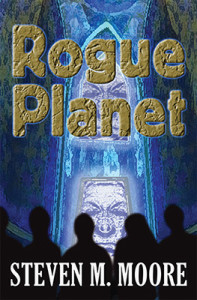“Rage, rage…”
No, this isn’t about the idiots with automatic weapons in Michigan’s capitol rotunda. Nor about the Turtle (McConnell) not wanting to bailout blue states, even though they put more into the Fed than they take out (CA and NY had economies bigger than most nations’), while his state (Kentucky) always takes out more than it puts in (and horse racing and liquor aren’t exactly essential industries!). While those and many other knucklehead antics associated with COVID-19 enrage me, this post is about mortality.
Let me continue the quote in the title: “…against the dying of the light.” Celtic poet Dylan Thomas’s poem is one of the most famous in the English language…and one of my favs. (Yes, he’s Welsh, but Ireland, Scotland, and Wales are all Celtic.) What Thomas is fundamentally protesting is that voyage we must all take to that “undiscovered country from whose bourn no traveler returns….”
Many people (like me), with fewer days ahead of them than behind, become aware of their mortality as the years pass. (In these days of pandemic, probably more so.) People rage at Death in different ways. That rage is quietly evident in their efforts to leave a lasting legacy, for example, to their immediate circle of family and friends, and beyond to the public at large through creative works. The first might be futile if a virus or climate change destroys most human life on Earth. Why waste the time? Those family members and friends might be dead anyway! But the second is futile too. Beethoven’s Fifth is remembered more than Beethoven’s life, after all (and Thomas’s life pales in comparison to his poetry). Some people don’t even know that Beethoven’s last magnificent works were composed when he was deaf, but Beethoven was alive and kicking in Vienna only a few hundred years ago. Will his symphony be remembered in one thousand years? Maybe, if human beings are still around then and are interested in ancient music, but ETs visiting a dead Earth in a thousand years wouldn’t hear it or care. Or even be familiar with any of the instruments he used in his orchestra.
While leaving a lasting legacy might motivate some writers—an expression of their quiet rage at Death—I doubt it motivates true storytellers. No, while these writers are typically reclusive introverts, their storytelling reaches out to human beings in the here and now who read stories that entertain, and yes, discuss grand issues like mortality, morality, and rage at the killer light other evil human beings cause.
While “evergreen books” show that books can live on a bit (they’re “out there” even if no one reads them), far beyond an author’s journey to that “undiscovered country,” good fiction is for the here and now and treats universal themes as they appear in our milieu, their universality understood by all. Evergreen books just do that a bit longer.
I have no delusions. I don’t expect that my stories will live on. I frankly don’t care. I get my kicks telling my stories in the here and now. My rage is more like Thomas’s: I lament that I can’t write them forever.
***

Comments are always welcome!
Rogue Planet. A murdered king’s son fights to free his people from an oppressive religious tyranny. An epic military and romantic sci-fi novel with Game-of-Thrones and Star Wars fantasy elements awaits you. Set in the same universe as The Chaos Chronicles Trilogy Collection and A. B. Carolan’s sci-fi mysteries for young adults, this book is available at Amazon in print and ebook versions, and at Smashwords and its affiliated retailers (iBooks, B&N, Kobo, etc.) and lending and library services (Scribd, Overdrive, Baker&Taylor, Gardners, etc.).
Around the world and to the stars! In libris libertas!
